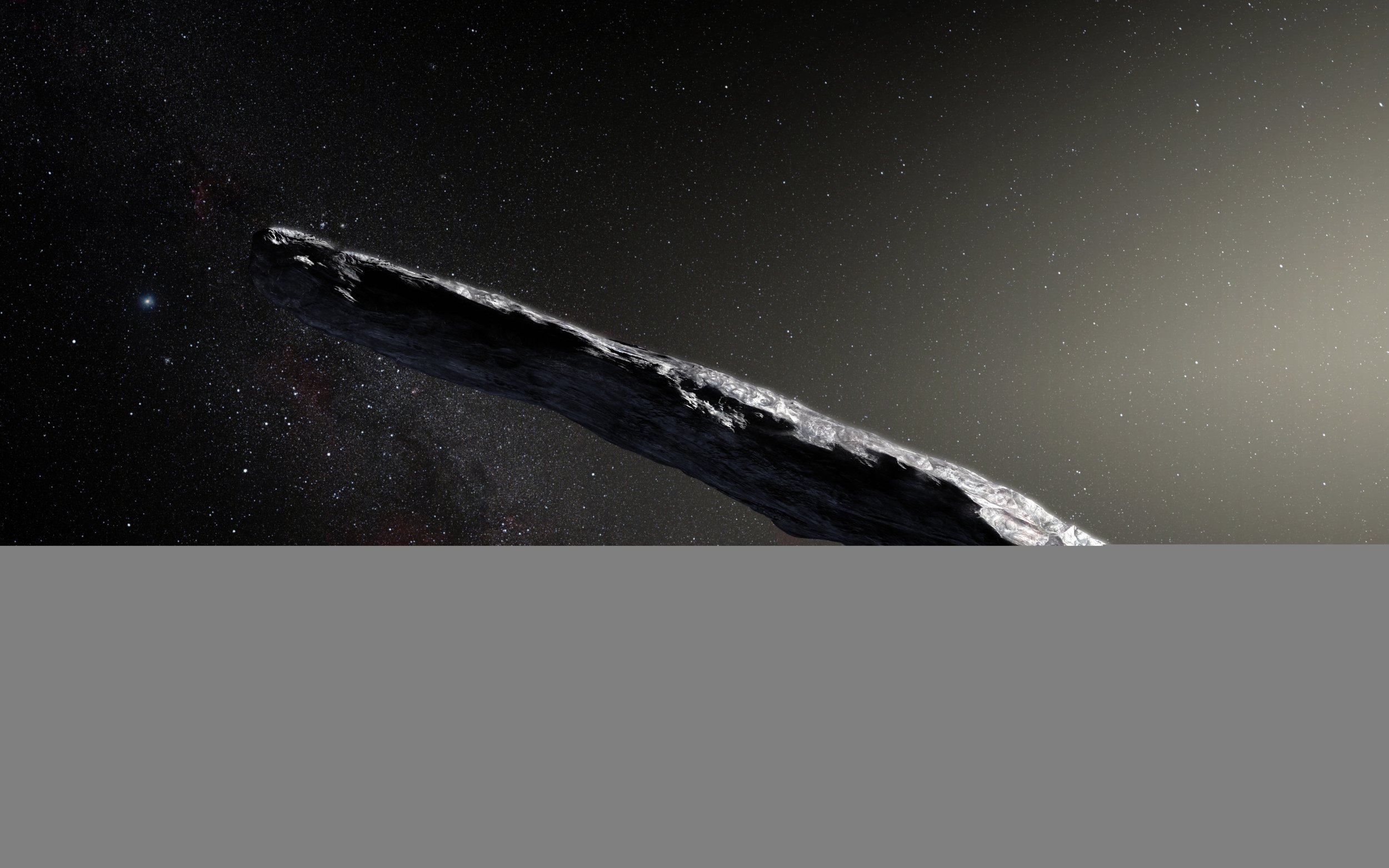
Updated | Astronomers scanning interstellar asteroid Oumuamua for signs of alien communication have so far come back empty-handed. But that doesn't mean there's no chance of the asteroid, or any other such visitor in the future, having something a little alien about it.
Panspermia, an intriguing theory on the origins of life on Earth, holds that terrestrial life was born not on our planet but elsewhere in the universe, hitching a ride from another planet on a meteorite or comet. Or interstellar asteroid. Could Ouamuamua present an opportunity to test this theory?
Scientists already know that tiny, hardy life can survive the harsh conditions of space. In 2007, an experiment sent microscopic organisms called tardigrades (nicknamed water bears or moss piglets) into low-Earth orbit with no protection. "They can serve as tiny astronauts," Avi Loeb, an astronomer at Harvard University, told Newsweek. One project wants to send tardigrades or similarly hardy critters out into interstellar space, a harsher environment than low-Earth orbit, at a quarter of the speed of light.
It's not such a stretch to imagine that another, currently hypothetical, planet with life on it could have equally hardy life forms. It's also not a leap to imagine Oumuamua transporting them from one planet to another—panspermia in action.
Spotting that life on Oumuamua, however, is a challenge. "In principle, we could probe the composition of the object," Loeb said. "If we are able to land on it, we could excavate it just like we do for other objects on the solar system." A tiny bit of this work has already been done for Oumuamua: A recent paper suggested the asteroid has an icy interior protected by a thick sheath of simple organic compounds.
But scientists already know that organic molecules like these can be found in interstellar space as well, so that's not enough of a fingerprint. "We need to detect molecules that are very complex," Loeb said—molecules more like our DNA. "Eventually, these are indicative of life."
What Loeb would really like to do is rendezvous with an interstellar object like Oumuamua to study it directly. A visitor like this one is a huge gift to planetary scientists, who would otherwise need to travel light-years away to study exoplanets directly.
"We should take advantage of those visitors that come to our backyard," Loeb said. And scientists think they should be pretty common, despite Oumuamua being the first we've seen.
The asteroid was first spotted two months ago, when it caught scientists' eye with its highly unusual path through our solar system and its absence of a comet's icy sheath. But astronomers had actually expected to see such an object long before.
Unfortunately, getting up close and personal with Oumuamua is not an option. The asteroid is moving faster than any rocket we could launch today, passing the sun at 196,000 miles per hour. That means we need to build faster rockets, find a slower asteroid, or both.
"The best would be for us to have the technology that allows us to chase it down," Loeb said. For Oumuamua, it's not to be—but maybe next time we'll be ready.
This story has been updated to include more details about Oumuamua's discovery.
Uncommon Knowledge
Newsweek is committed to challenging conventional wisdom and finding connections in the search for common ground.
Newsweek is committed to challenging conventional wisdom and finding connections in the search for common ground.
About the writer
Meghan Bartels is a science journalist based in New York City who covers the science happening on the surface of ... Read more
To read how Newsweek uses AI as a newsroom tool, Click here.








